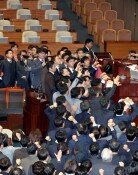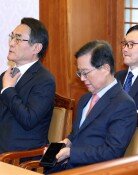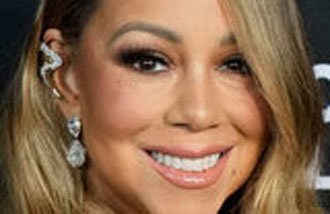New PM, presidential secretary should speak reality to president
New PM, presidential secretary should speak reality to president
Posted April. 15, 2024 08:07,
Updated April. 15, 2024 08:07
President Yoon Suk Yeol has been mulling the selection of a new prime minister and his new chief of staff as part of his efforts to overhaul his administration due to the results of the April 10 general elections. Initially, many watchers said that the new presidential chief of staff would be announced Sunday, but the presidential office showed a cautious attitude, saying that it "needs more time." However, internally, the presidential office is reportedly watching the public's reaction as it considers former land, infrastructure, and transport minister Won Hee-ryong for the new chief of staff and lawmaker Kwon Young-se for the new prime minister.
Prioritizing politicians as candidates for the new prime minister and the new chief of staff may be a natural choice in the face of a political crisis brought on by the ruling party’s crushing defeat in the general elections. However, it is questionable whether the reality of appointing such political figures will comply with President Yoon's pledge to "renew his administration and stabilize the economy and people's livelihoods" immediately after the elections.
Most current candidates for prime minister and chief of staff are from the president's close circle. They are not from outside the category of 'people the President are familiar and who have worked with him previously,’ which has been considered the biggest problem with the incumbent government's personnel management. For one, it is doubtful whether former minister Won, who ran against Lee Jae-myung of the Democratic Party in the general elections, is the right person to coordinate meetings between the President and opposition leaders. In particular, Won and Kwon have something in common: they are both former prosecutors who went to the same university as the President. This is bound to cause the opposition parties to criticize that "The government has not figured out the gravity of the situation.’
The public has judged the President's arrogance and lack of communication in the general elections. Above all, the barometer of whether the president is committed to changing his leadership style would be the selection of the next prime minister. His administration needs the kind of a prime minister who is endorsed by a majority in parliament, a prime minister who can unify the public and deal with a large opposition, and who has real power. A prime minister with the strength of character to stand up to the President and ample experience and wisdom is needed to persuade the opposition. The same goes for the President's closest secretary, his chief of staff. He or she should be a skilled assistant who is able to communicate the people's concerns to the President without reservation, one who knows the economy and administration while also paying attention to policy details that the President lacks.
Finding such a person will surely require a shift in the President’s perception and warrant his willingness to go beyond the narrow circles around the President and the ruling party. Many of the potential candidates will likely refuse to participate in a government of a parliamentary minority. If it cannot successfully invite such a candidate even with as many as three trials, the administration should be prepared to try ten times. If the administration promises to give the prime minister real power and demands the chief of staff to report the realities to the President, even those who have been reluctant will respond and accept. The results of the general elections have brought the biggest crisis to the Yoon administration. The crisis of the government is a crisis of state administration, and a crisis of the nation. The administration must show the people that it is prepared to deal with any crisis by appointing personnel with the ability, character, commitment, and courage.







